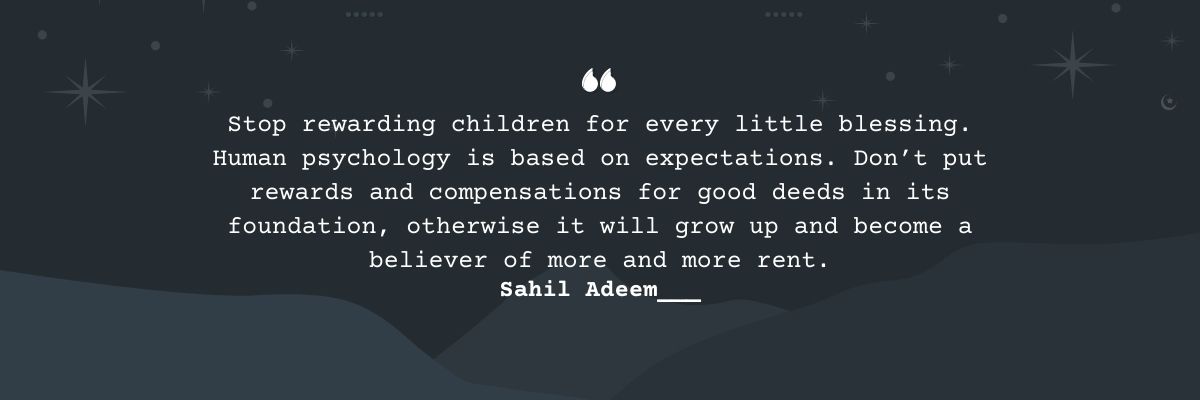Stop rewarding children for every little blessing. Human psychology is based on expectations. Don’t put rewards and compensations for good deeds in its foundation, otherwise it will grow up and become a believer of more and more rent.
Sahil Adeem___
The quote warns against the dangers of constantly rewarding children for their good deeds and behavior. It suggests that this approach to child-rearing can have negative consequences for the development of a child’s psychology and can lead to the creation of a sense of entitlement.
According to the quote, human psychology is based on expectations, and by constantly rewarding children for every little thing they do, we may be setting unrealistic expectations for their future. Children may come to believe that they are entitled to a reward or compensation for every good deed they perform, and may begin to view these rewards as a normal and expected part of life.
Over time, this sense of entitlement can grow and become a part of the child’s belief system. They may come to expect rewards for their actions, and may become less likely to perform good deeds without the expectation of a reward. This can result in a sense of entitlement that extends beyond childhood and into adulthood, where individuals may come to believe that they are entitled to more and more compensation and rewards for their good deeds.
To avoid this outcome, it is important to be mindful of how we reward children for their good behavior. Rather than constantly rewarding them for every little thing they do, we should focus on rewarding them for exceptional achievements or for demonstrating particularly positive behaviors. This approach will help to create a sense of balance and perspective, and will help children to understand that rewards and compensations are not an entitlement, but are earned through hard work and dedication.
In conclusion, the quote highlights the importance of being mindful of how we reward children for their good behavior. By avoiding the temptation to reward them for every little thing they do, we can help to create a more balanced and healthy psychology, and can help children to develop a sense of responsibility and a strong work ethic. This approach will serve them well in the future, as they will be better prepared to face the challenges and opportunities of adulthood with confidence and resilience.




